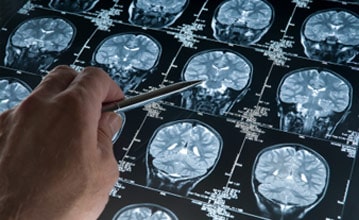Treatment for Restless Leg Syndrome in Leesburg
What Is Restless Legs Syndrome?
Also known as Willis-Ekbom Disease, restless legs syndrome, or RLS, is the nearly uncontrollable urge to move your legs, typically to relieve an sensation that is uncomfortable. This condition most often occurs in the evening hours, or when you're sitting or lying down. Because this sensation often happens during times of relaxation or sleep, RLS is known to cause sleepiness and exhaustion, thus affecting mood, concentration, and daily performance and potentially causing depression and anxiety.
Dr. Seth Tuwiner provides comprehensive testing and treatment for restless leg syndrome at his office in Leesburg. Learn more about your treatment options and call the Virginia Center for Neuroscience today at (703) 293-5244.
Symptoms of RLS
Although the main, recurring symptom of RLS is the urge to move the legs or affected part of the body, other symptoms may include:
- Aching or throbbing in legs or other parts of the body (although less common in the arms, chest, and head)
- Difficulty falling and staying asleep due to pain
- Awaking to a symptom-free feeling in the morning
- Twitching of the legs during the nighttime
- Finding relief with constant movement such as jiggling, pacing, and walking
If you're experiencing any of the symptoms above with an abnormal sensation in any of your limbs, or on either or both sides of your body, you may be experiencing RLS. It's important to track your symptoms as they may fluctuate in severity and consistency.
Causes of RLS
There's typically not a specific root cause for RLS in most cases, but there are certain conditions that may be related to RLS, such as:
- Nerve damage (neuropathy)
- Family history of RLS
- Pregnancy, most commonly in the last trimester
- Overuse of alcohol, nicotine, or caffeine
- Sleep apnea or deprivation, along with other sleep conditions
- Iron deficiency
- Parkinson's disease
- End-stage renal disease
There is also evidence that RLS may be related to a disruption of the brain's dopamine flow. Because of this disruption, a person may not be able to produce enough dopamine the have smooth muscle activity, resulting in a feeling of restlessness in their limbs.
Diagnosis and Treatment of RLS
When diagnosing RLS, there is no specific test to rule out other factors. However, a doctor will use the patient's descriptions of symptoms and how they found relief in order to determine if it is, indeed, RLS. In addition, there may be cause for a physical or neurological exams and lab testing in order to rule out other conditions.
When treating RLS, the main course of action is finding consistent relief for any symptoms. Although the condition may be lifelong, there are possible treatment options such as:
- Decreasing alcohol and tobacco use
- Adjusting sleep patterns
- Exercising
- Getting consistent massages on the affected area
- Using a heating pad or ice pack
- Taking iron supplements
- Taking certain medications associated with other conditions, although this is at the discretion of your doctor
Schedule a Consultation
Although RLS does not clearly indicate a neurological disease, it's important to discuss any and all symptoms with Dr. Seth Tuwiner to rule out any possibility.
Contact us today by calling (703) 293-5244 to determine the proper course of action for managing your symptoms!




